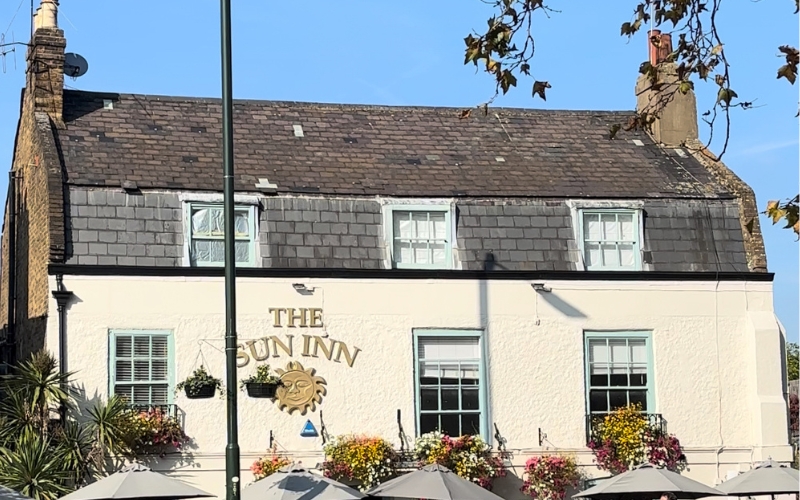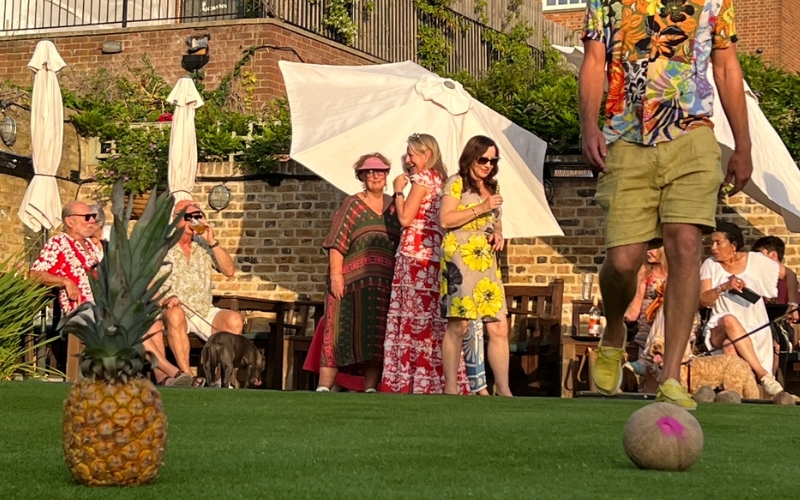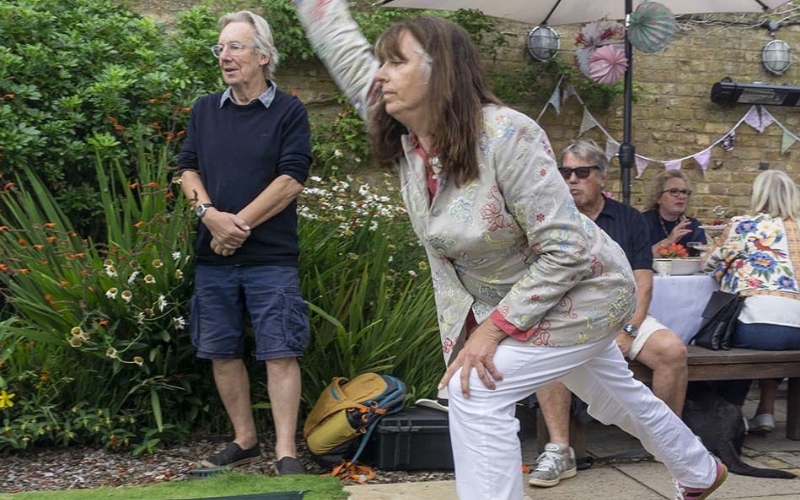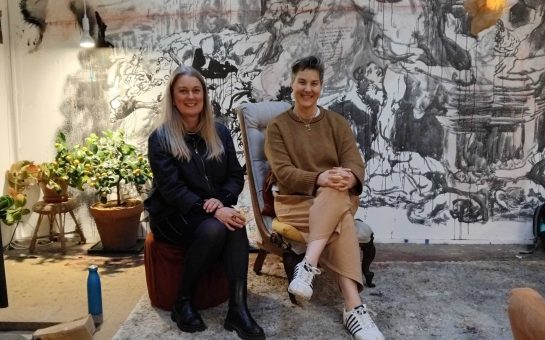One of the most traditional and quintessentially-British sports, lawn bowls, might be on a gradual decline – but Barnes Bowling Club would say otherwise.
Despite another successful Bowls’ Big Weekend and progress in the disability version of the sport, Bowls England reported in July association club memberships had fallen by 2.7%.
On the international stage, the £100,000 raised for the Glasgow 2026 Commonwealth Games programme fell short of their target.
London’s oldest club, on the other hand, celebrated turning 300 earlier this year and with over 100 active members – more than ever before – it appears to be thriving.
Team captain and resident historian Alaric Evans, 68, who believes bowling in the area can be traced as far back as 1725, might be able to explain how they’ve lasted so long.
“Think of it like a pool table,” he said. “It was something that the pub had, because they had the space and it brought the customers in. I think people probably paid a penny a game.”
But the way in which Alaric suspects the club was formally established sounds more akin to a storyline off of a soap opera, like Eastenders.
Joe Seal, a local butcher who moved to Barnes in the 1870s, was a regular at the pub and thoroughly enjoyed a game of bowls.

When the pub’s ownership changed, it led to him leasing it exclusively for members of his shiny new bowling club.
It goes without saying that the members of London’s oldest bowling club have been paramount to its remarkable longevity. But what kept bringing people back?
Club president Jeremy Frearson, who has called Barnes his home for at least 50 years, values the invaluable social side of bowls above all else.
“As you get older you treat this as ‘social insurance’, in case anything happens to one’s nearest and dearest and you’re left on your own. Me, for instance,” the 76-year-old said.
“You’d have a ready-made social circle here. At the moment it’s a nice complement to a home life but it could become really quite central.”
It seems it’s more than a bowling green, or one of the pub’s games. It’s a community asset.
In 1922, the Sun Inn’s landlord planned to convert the green into a tennis court, to which the local paper published a response that read: “It seems little short of sacrilege to abolish this historic green, which cannot be replaced.” The project never came to fruition.
But perhaps their unique style of bowling kept catching the eye.
Their green, with its slightly banked perimeters and undulating surface, together with their high-bias wooden bowls that travel with additional curl, provides an experience unlike most places.
To play a similar game, you’d have to visit either Southampton or Chesterfield – two clubs that predate bowling in south west London by another 500 years.
In a way, Barnes Bowling Club doesn’t have much of a choice but to reject the conventions of typical lawn bowling. Their green is simply too small.
Their brand is so different that they don’t compete in local or national competitions, like association clubs do, opting to host internal tournaments instead.
But Mark Hunter, 41, the club’s vice captain, doesn’t see that as a bad thing.
“I find this game a bit more interesting,” he said. “With lawn green bowls it’s kind of flat and the same every time. [The green] adds more of a random element, that even the best players have an off day.”
Set aside traditional wooden bowls, one day the club decided to mix things up and use coconuts (yes, there were coconuts with different biases) to throw at a pineapple used as the jack. They called in the Pineapple Cup. Think cocktails, Hawaiian shirts, the whole bit.
What was the winner’s prize? The pineapple, of course.

Mark, like Jeremy, also enthused about the club’s close-knit community. As the club doesn’t compete regularly with anyone else, most of its members likely know most others.
Jeremy believes that the maverick Elizabethan style is tailored to those who play it.
“The members here all have their own intriguing backstories, talents, or quirks, but that’s Barnes,” said the award-winning sculptor. “This quirky, unique game suits the Barnes personality really well.”
So who might they be? Roger Chapman, front man of the progressive rock band Family in the late 60s and early 70s, is renowned for his command of the green.
Paul McCartney, keyboardist Alan Price, Stone the Crows singer Maggie Bell, their list of musical guests goes on.
Fan of crime fiction? Club member Bernard O’Keeffe is a published author, and launches each new edition at the local bookshop just down the road.
Sarah Darwin, the great-great granddaughter of – that’s right – Charles Darwin, took four of the club’s woods with her while recreating his famous expedition aboard the Beagle. Obviously, Sarah brought them back and had a go too.

Being a sport that anyone can pick up – albeit its age structure is typically top-heavy – you never know who you could meet. As far as club secretary Tracy Griesley is concerned, there’s no reason why you shouldn’t.
“It’s not age-exclusive and it’s also not gender exclusive,” the 61-year-old said.
“Some of the 40- or 50-year-olds have teenage kids, and the teenage kids want to come down and play.
“Nobody’s judging you, they’re all supportive. And at the end of the day, it’s fun.”
Reflecting on what the future has in store for Barnes Bowling Club, Jeremy said: “In five years time, I would both hope and expect it to be very much the way it is.”
And it all started because the local butcher could no longer play for free. Supposedly.





